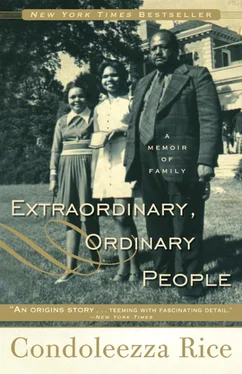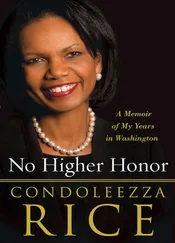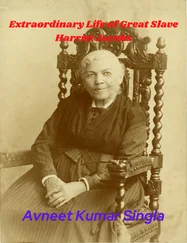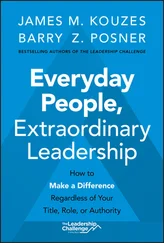Black Panthers:Activists in Oakland, California, founded the Black Panther Party for Self-defense to protect their communities from police brutality. The influential party grew controversial when it began to call for radical measures such as arming all blacks. Conflicts between the Black Panthers and the police were common in the late 1960s and early 1970s.
Bond, Julian (1940–):Black activist and civil rights leader who helped found the Student Nonviolent Coordinating Committee (SNCC) and was elected to the Georgia state legislature as a representative and then as a senator. For many years Bond was the president of the Southern Poverty Law Center and the national chairman of the NAACP.
Brezhnev, Leonid (1906–1982):Communist leader of the Soviet Union from 1964 to 1982.
Brown, Jim (1936–):Running back for the Cleveland Browns football team for nine years.
Bush, George H. W. (1924–):Elected the forty-first president of the United States. Joined the U.S. Navy at age eighteen, becoming its youngest flier, and served in World War II, earning the Distinguished Flying Cross for bravery in action, among other awards. Later Bush attended Yale University, then moved to Texas, where he started an oil business and became active in politics. After serving as vice president under Ronald Reagan (1981–1989), Bush served as president from 1989 to 1993. Nine months into his presidency, the Berlin Wall was torn down. When Iraq invaded neighboring Kuwait, Bush sent U.S. troops to join allied forces in expelling Saddam Hussein’s forces from its neighbor during the 1991 Persian Gulf War.
Bush, George W. (1946–):One of four sons of George H. W. Bush. He spent six years as governor of Texas before being elected the forty-third president of the United States (2001–2009). Within eight months of his taking office, on September 11, 2001, terrorists flew two commercial airplanes into the World Trade Center towers in New York and one into the Pentagon in Washington; a fourth hijacked plane crashed in a field in Pennsylvania. In all, nearly three thousand people died. President Bush declared a war on terror and launched military campaigns in Afghanistan in 2001 and Iraq in 2003.
Carmichael, Stokely (1941–1998):Black activist, a founder of the SNCC, and the originator of the motto “Black Power.” Carmichael was a good friend of the Rice family and frequently lectured in John W. Rice’s courses at Denver University.
Carter, James Earl “Jimmy” (1924–):Thirty-ninth president of the United States (1977–1981). After his bid for reelection failed, he founded the Carter Center, which works to advance global peace and human rights. Carter is also an ardent supporter of Habitat for Humanity, an organization through which volunteers build houses for those in need. He remains active in international diplomacy and was awarded the Nobel Peace Prize in 2002.
Civil Rights Act of 1964:Historic legislation passed during the civil rights movement and signed by President Lyndon B. Johnson that prohibited segregation in places of public accommodation.
Clinton, William Jefferson “Bill” (1946–):Forty-second president of the United States (1993–2001). Clinton served during a time of relative peace and economic expansion. In 1998, Congress began impeachment proceedings against him after he was accused of misconduct with a White House intern; he apologized to the nation, and his approval rating remained high until he left office. Clinton’s wife, Hillary Rodham Clinton, was elected to the U.S. Senate and became secretary of state under President Barack Obama.
Cold War (c. 1947–1991):State of political hostility and military threats that existed after World War II between the United States and the Soviet Union.
Communism:Political ideology in which the central government controls the economy. In contrast to democracies, leaders in communist governments rise from within a single political party, and the state places strict limits on personal freedoms and political expression.
Connor, Theophilus Eugene “Bull” (1887–1973):Public safety commissioner of Birmingham, Alabama, during the 1960s and a staunch supporter of segregation known for his brutality.
Cuban Missile Crisis:In October 1962, the United States discovered that the Soviet Union was installing nuclear missile sites in Cuba, ninety miles off the coast of Florida. President Kennedy demanded that the missiles be removed and instituted a naval blockade of the island. After tense negotiations and close confrontations that many believed would lead to nuclear war, the USSR acceded, with concessions on both sides.
Dickens, Charles (1812–1870):Famous English novelist whose works include A Tale of Two Cities, David Copperfield, Bleak House , and A Christmas Carol .
Farrakhan, Louis (1933–):Black activist, social critic, and leader of the Nation of Islam, an organization that champions black nationalism and cultural awareness through the teachings of Islam.
German unification (1989–1991):Diplomatic process at the beginning of the 1990s that united West Germany and East Germany. After the fall of the Berlin Wall in November 1989, leaders negotiated a settlement unifying the two countries into a single German state.
Gorbachev, Mikhail (1931–):General Secretary of the Communist Party of the Soviet Union (1985–1991), then elected president of Russia (1990–1991). Gorbachev presided during a time of momentous changes, most notably the formation of an elected parliament in the USSR, the reunification of Germany, and the end of the Cold War. His liberalizing policies made him popular in the West, where he often was referred to as Gorby.
Gregory, Dick (1932–):Came to fame as an edgy comedian who confronted racial prejudice. Over the years, he has developed into a writer, social critic, and health activist.
Hamer, Fannie Lou (1917–1977):The granddaughter of slaves, Hamer became an activist when she was forced to leave the plantation where she was a sharecropper after trying to register to vote. In 1964, she led an alternate delegation to the Democratic National Convention to challenge the all-white Mississippi delegation.
Hesburgh, Theodore (1917–):Roman Catholic priest and president of the University of Notre Dame (1952–1987). During his term of office, Notre Dame became a coeducational school.
Historically Black Colleges and Universities (HBCU):Institutions founded specifically for the education of black people. The first all-black colleges include Grambling State University (founded in 1901), Howard University (1867), Meharry Medical College (1876), Miles College (1898), Morehouse College (1867), Spelman College (1881), Stillman College (1876), Tuskegee University (1880), and Wilberforce University (1856).
Hoover Institution on War, Revolution and Peace:Organization on the Stanford campus that produces research on domestic and international affairs.
Johnson, Frank (1918–1999):Federal judge whose rulings helped end segregation in the South. Johnson received so many death threats that his family was under federal protection for more than twenty years.
Johnson, Lyndon Baines (1908–1973):When President Kennedy was assassinated in Dallas in November 1963, Vice President Johnson was sworn in and became the thirty-sixth president of the United States. The following year, he was elected to the office, and he served from 1963 to 1969. He signed into law the Civil Rights Act of 1964 and the Voting Rights Act of 1965. He also escalated American involvement in the Vietnam War.
Читать дальше












